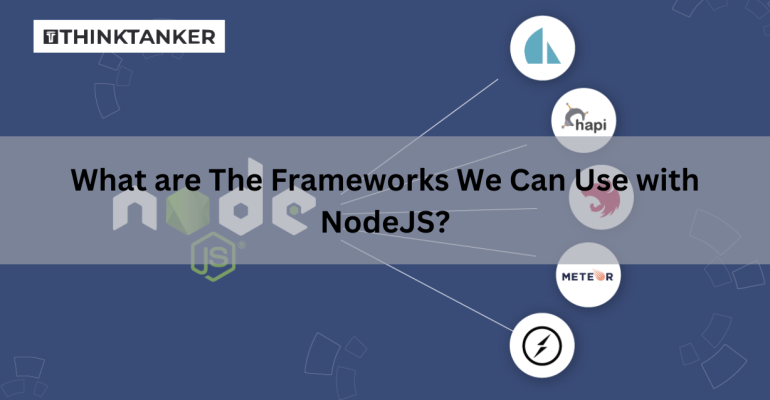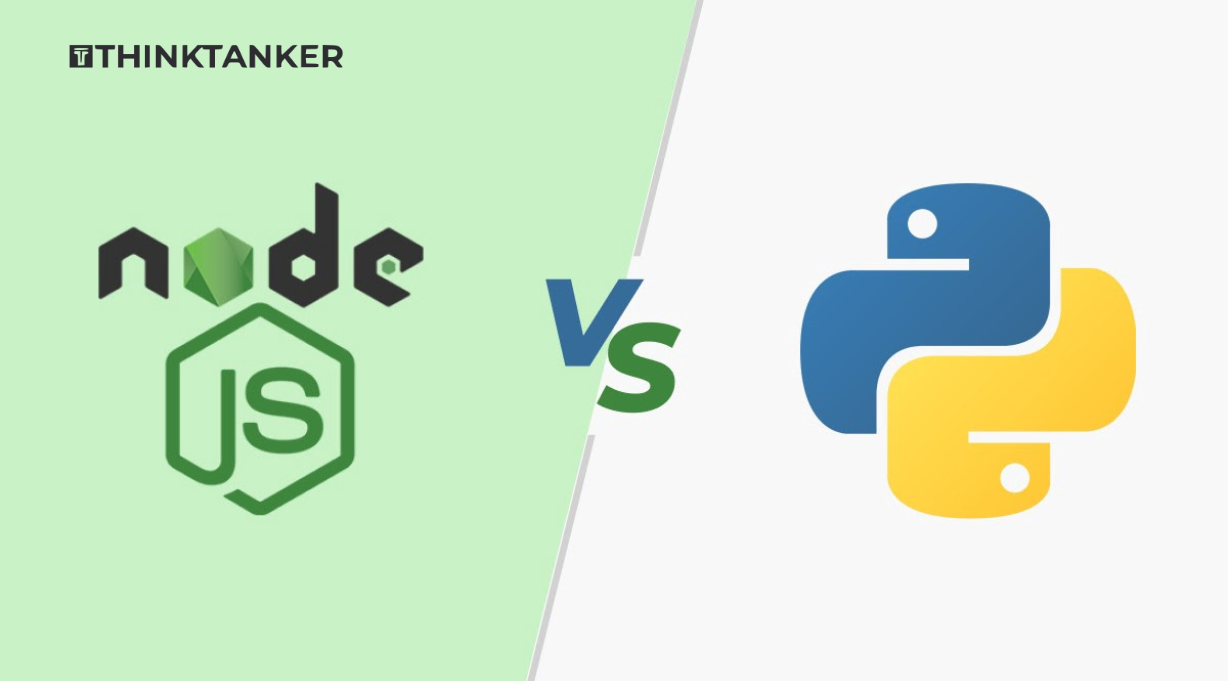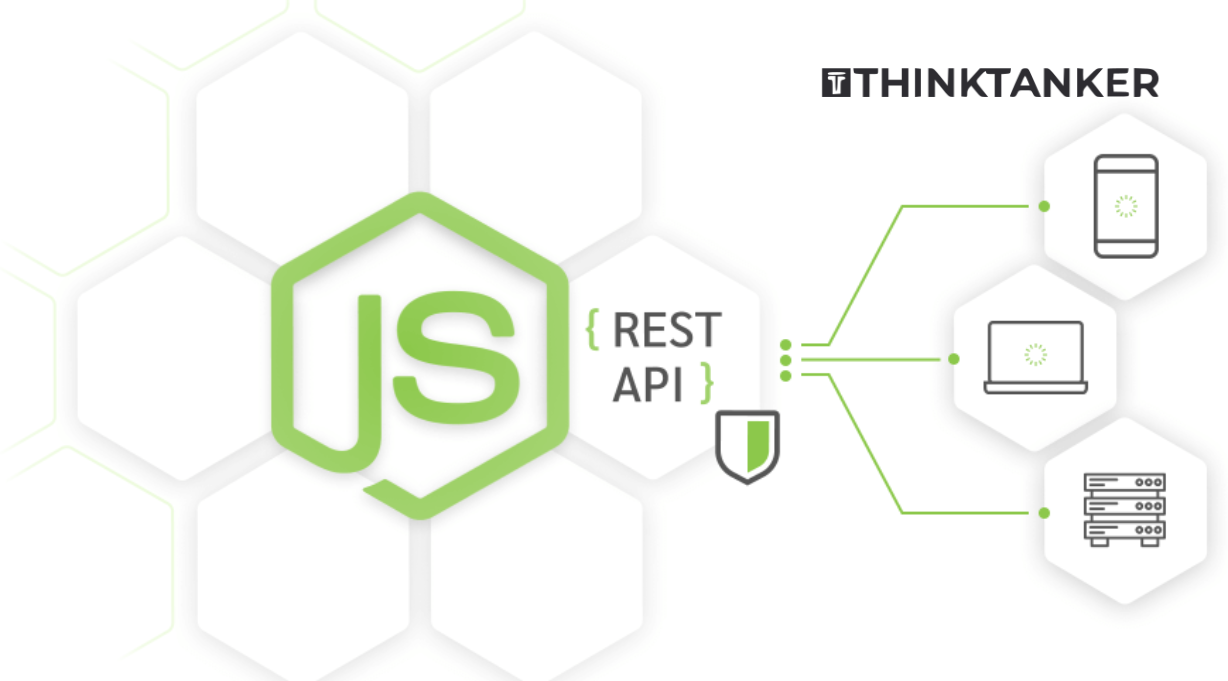What are The Frameworks We Can Use with NodeJS?

What are The Frameworks We Can Use with NodeJS?
Node.js is a popular runtime environment that allows developers to run JavaScript on the server-side. It has gained popularity due to its ability to handle large-scale applications, real-time applications, and microservices.
Node.js is an excellent choice for building scalable, performant, and efficient web applications. It provides an extensive library of modules and packages, making it easy for developers to build robust and maintainable applications.
One of the benefits of Nodejs development services is the availability of various frameworks, which makes building applications more efficient and faster.
In this article, we will discuss some of the popular frameworks that developers can use with Node.js.
Express.js
Express.js is a minimalist web application framework that provides a robust set of features for building web and mobile applications. It is one of the most popular frameworks for Node.js, with a vast community and many plugins and modules available. It is easy to learn, and it provides you flexibility of customization when you hire node js developers. Express.js provides features such as routing, middleware, and templating, making it a popular choice for building RESTful APIs.
Nest.js:
Nest.js is a progressive framework for building efficient, scalable, and maintainable server-side applications. It is built on top of Express.js, providing an easy-to-use architecture for building enterprise-grade applications. Nest.js provides features such as dependency injection, server-side rendering, and code generation. It is suitable for building applications with microservices architecture.
Koa.js:
Koa.js is a lightweight web application framework that provides developers with a clean and minimalist interface for building web applications. It is developed by the team behind Express.js, and it is designed to be more modular and extensible. Koa.js provides features such as middleware, routing, and error handling. It is an excellent choice for building high-performance applications.
Hapi.js:
Hapi.js is a robust framework for building web and mobile applications. It provides a rich set of features for building APIs, web services, and microservices. Hapi.js provides features such as caching, validation, authentication, and authorization. It is designed to be highly modular and extensible, making it a popular choice for building scalable applications.
Meteor.js:
Meteor.js is a full-stack framework for building web and mobile applications. It provides a complete set of tools for building real-time applications, including a client-side JavaScript framework and a server-side Node.js framework. Meteor.js provides features such as real-time data synchronisation, hot code push, and client-side caching. It is an excellent choice for building applications with real-time features.
LoopBack:
LoopBack is a highly extensible and customizable framework for building enterprise-grade applications. It provides features such as data modelling, REST API generation, and OAuth 2.0 authentication. LoopBack is an excellent choice for building microservices-based applications with a large number of data sources.
Conclusion
In conclusion, Node.js has become a popular choice for developers looking to build scalable, efficient, and high-performance web applications. Its extensive library of modules and packages, combined with the availability of various frameworks, has made it easier for developers to build complex applications with ease.
Each of the frameworks discussed in this article, from Express.js and Koa.js to Nest.js and Hapi.js, offer unique features and benefits that cater to specific needs and preferences. Whether you are building RESTful APIs, microservices-based applications, or real-time applications, Node.js has a framework that can help you get the job done efficiently and effectively.





